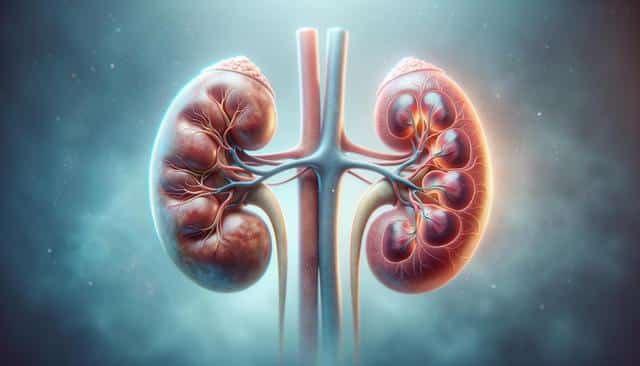The Importance of a Kidney-Friendly Diet
For those living with kidney disease, making informed dietary choices is vital. The kidneys play a crucial role in filtering waste and excess fluids from the blood, and when these organs are compromised, maintaining a balanced diet can significantly impact overall health and well-being. A kidney-friendly diet often involves limiting certain nutrients such as sodium, potassium, and phosphorus. These elements can accumulate in the body and cause complications, as the kidneys are not functioning optimally to remove them. Additionally, protein intake may need to be adjusted based on the stage of kidney disease, as too much protein can burden the kidneys. Always consult with a healthcare provider or a registered dietitian to tailor dietary plans specific to individual needs.
Foods to Include
There are several foods that individuals with kidney disease can enjoy that help maintain health while minimizing strain on the kidneys. Low-potassium fruits such as apples, berries, and peaches are excellent choices. Vegetables that are low in potassium like cauliflower, cabbage, and cucumbers can be included in meals. For healthy fats, olive oil and unsalted butter can be beneficial. It’s also important to incorporate grains like white rice or pasta, which provide energy without overloading the kidneys with nutrients that are hard to process. Here are some kidney-friendly food options:
- Apples and berries
- Cauliflower and cucumbers
- White rice and pasta
- Olive oil and unsalted butter
These choices support a balanced diet while adhering to the dietary restrictions necessary for kidney health.
Foods to Avoid
Managing kidney disease effectively often requires avoiding certain foods that can exacerbate symptoms or lead to complications. High-sodium foods such as processed snacks, canned soups, and cured meats should be minimized, as they can increase blood pressure and further damage the kidneys. Potassium-rich foods like bananas, oranges, and avocados may also need to be limited, depending on individual tolerance levels. Additionally, high-phosphorus foods, which include dairy products and nuts, can be problematic for those with kidney disease. It’s crucial to read food labels and be aware of hidden sources of these nutrients. Some specific foods to limit include:
- Processed snacks and canned soups
- Bananas and oranges
- Dairy products and nuts
- Avocados and tomatoes
By carefully selecting foods, individuals can manage kidney disease more effectively and maintain better overall health.
Tips for Meal Planning
Effective meal planning is a vital component of managing kidney disease. Start by working with a healthcare professional to determine specific dietary restrictions and daily nutritional needs. Incorporate a variety of foods to ensure balanced nutrition while staying within the prescribed dietary limits. Planning meals in advance can help reduce stress and ensure that healthy choices are readily available. Consider preparing meals in larger batches to save time and effort. Focus on using fresh ingredients whenever possible, as they typically contain fewer preservatives and additives than processed foods. Here are a few tips for successful meal planning:
- Work with a dietitian to tailor plans
- Use fresh ingredients
- Plan meals in advance
- Prepare meals in batches
These strategies can help individuals with kidney disease manage their condition more effectively.
Benefits of a Balanced Diet for Kidney Health
A balanced diet plays a crucial role in supporting kidney health and overall well-being. By adhering to dietary guidelines and choosing the right foods, individuals can help slow the progression of kidney disease, manage symptoms, and reduce the risk of complications. A well-planned diet can also improve energy levels, enhance mood, and contribute to a better quality of life. Furthermore, it can aid in maintaining a healthy weight, which is essential in managing kidney health. By focusing on nutrient-rich foods that align with dietary restrictions, individuals can support their kidneys’ function and promote long-term health. Understanding the importance of dietary management and making informed food choices can empower those with kidney disease to lead healthier, more fulfilling lives.
Conclusion
For individuals with kidney disease, a well-managed diet is a cornerstone of health management. By understanding which foods to include and avoid, and by implementing effective meal planning strategies, it is possible to maintain kidney health and enhance overall well-being. Always consult healthcare professionals to create a personalized dietary plan suitable for your specific needs, ensuring that you support your kidneys and lead a healthier life.
